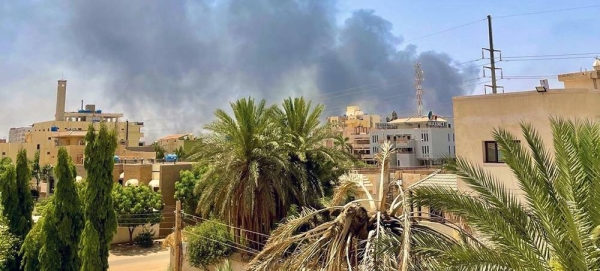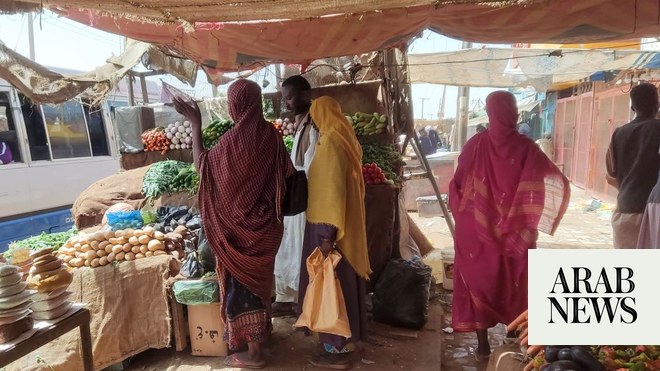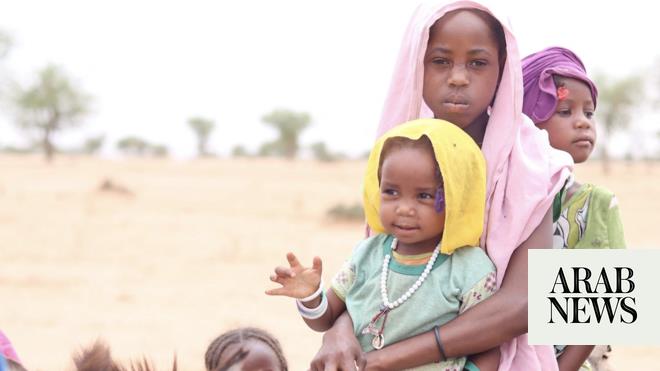
A ceasefire in Sudan appears to be holding, although there have been reports of new gunfire and shelling.
It is the fourth effort to stop the fighting which began on April 15, with previous truces not observed.
US Secretary of State Antony Blinken said the 72-hour truce had been agreed between the army and the paramilitary Rapid Support Forces (RSF) after 48 hours of negotiations.
The latest ceasefire attempt started at midnight (22:00 GMT on Monday).
At least 459 people have died in the conflict so far, though the actual number is thought to be much higher. Both sides had confirmed they would cease hostilities.
But Tagreed Abdin, who lives 7km from the center of Khartoum, said she could hear shelling from her home on Tuesday morning despite the agreement.
“The situation right now is that this morning there was shelling and gunfire,” she told the BBC.
“Obviously the ceasefire hasn’t taken,” she added.
The RSF has accused the army of violating the truce by “continuing to attack Khartoum with planes”.
Meanwhile, an army spokesperson has told Sky News Arabia that the RSF was responsible for “storming prisons” following reports of gunfire at Port Sudan.
In other developments, the World Health Organization (WHO) has warned there is a “high risk of biological hazard” after fighters seized a laboratory believed to be holding samples of diseases, including polio and measles.
The National Public Health Laboratory is near the center of Khartoum and not far from city’s main airport.
The WHO told the BBC that workers can no longer access the laboratory, and power cuts are making it impossible to properly manage the biological and chemical materials that are stored in the lab.
Since the violence began, residents of Khartoum have been told to stay inside, and food and water supplies have been running low.
The bombing has hit key infrastructure, like water pipes, meaning that some people have been forced to drink from the River Nile.
Hospitals are running out of key supplies and struggling to cope, according to secretary general of Sudan Doctors Union Dr. Atia Abdalla Atia.
Countries have scrambled to evacuate diplomats and civilians as fighting raged in central, densely populated parts of the capital.
There will be hopes the latest ceasefire will allow civilians to leave the city. Foreign governments will also hope it will allow for continued evacuations out of the country.
Several EU member states, as well as African and Asian countries, have evacuated hundreds of their citizens, while the UK government has announced it will begin evacuating British passport holders and immediate family members from Tuesday.
On Monday, Blinken said that some convoys trying to move people out had encountered “robbery and looting”. Egypt’s Foreign Ministry confirmed that an attaché had been killed while driving to the embassy in Khartoum.
The UN is bracing for up to 270,000 people to flee Sudan into neighboring South Sudan and Chad.
Hassan Ibrahim, 91, is among those to have already fled the country. The retired physician lives near the main airport in Khartoum, where some of the worst fighting has taken place, but has since made the perilous journey into neighboring Egypt with his family.
He told the BBC World Service’s Newshour program they had escaped being caught up in a firefight between RSF fighters and the army but that a van travelling behind them was hit. The family then boarded a bus to the border, which took 12 hours, only for them to be met by “crowded and chaotic” scenes as people waited to be given entry.
“There were so many families with elderly passengers, children and babies,” said Ibrahim. “The Sudanese are fleeing the country — it is a sad reality.”
Eiman ab Garga, a British-Sudanese gynaecologist who works in the UK, was visiting the capital with her children when the fighting began and has just been evacuated to Djibouti on a flight organized by France.
Her hurried departure meant that she was not able to say goodbye to her ailing father, her mother or her sister.
“The country is dirty, there’s rubbish all over it,” she told BBC Radio 4’s World Tonight program. “There’s sewage overflowing, it smells, so now we’re next going to have an outbreak of illness and disease, and there won’t be a hospital to go to there.”
“We’re just looking at death and destruction and destitution.”
Violence broke out, primarily in Khartoum, between rival military factions battling for control of Africa’s third largest country.
Two military men are at the center of the dispute — Gen Abdel Fattah Al-Burhan, the head of the armed forces and in effect the country’s president, and his deputy and leader of the RSF, Gen. Mohamed Hamdan Dagalo, better known as Hemedti.
Gen. Dagalo has accused Gen. Burhan’s government of being “radical Islamists” and said that he and the RSF were “fighting for the people of Sudan to ensure the democratic progress for which they have so long yearned”.
Many find this message hard to believe, given the brutal track record of the RSF.
Gen. Al-Burhan has said he supports the idea of returning to civilian rule, but that he will only hand over power to an elected government. — BBC












